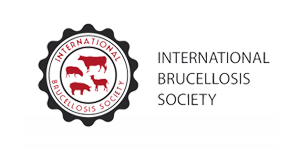Abstract
Brucellosis is endemic in the Republic of Azerbaijan. There was a testing and slaughter program in the country; but with about 740,000 small farms with livestock scattered in about 4,300 villages, it was very difficult to enforce. Since 2015, within the framework of the Agricultural Competitiveness Improvement Project, the strategy has been changed to universal vaccination of small ruminants and cattle. We carried out a series of cross-sectional epidemiologic studies of the disease in livestock. The series started in 2009 with a pilot study in four regions, and its efficacy was evaluated in 2015 when a seroprevalence study was conducted in 51 regions which revealed a reduction in small ruminant seroprevalences from 3.3% to 0.14% in pilot regions. Another seroprevalence study was conducted in early 2020 in 25 randomly selected regions. The pilot study program of vaccination with conjunctival Rev.1 of all non-pregnant female small ruminants of breeding age and all females between 3 and 8 months was expanded to the whole country in 2015 and was again associated with a reduction in small ruminant seroprevalences when assessed in 2020. The overall RR for all species in a comparison of the 2015 and 2020 surveys in 25 regions was 0.8% (0.7, 0.9). Differences between overall prevalence in individual regions in both surveys were small in most cases. This may havebeen due to sampling variability in selection of livestock owners at different locations and variability in prevalence and proportions of species of livestock. Small ruminant seroprevalences were lower in 2020 than in 2015. The pilot study program of annual vaccination with conjunctival administered Rev.1 to all female small ruminants between 3 and 8 months old and all non-pregnant females of breeding age in the first two years conducted between 2009 and 2015 resulted in lower brucellosis seroprevalence leading to the adoption of a national control program using the same vaccination strategy. Vaccination of cattle began in 2017 with vaccination of female calves 3 to 8 months of age and was expanded in 2020 to include vaccination of adult non-pregnant females.







